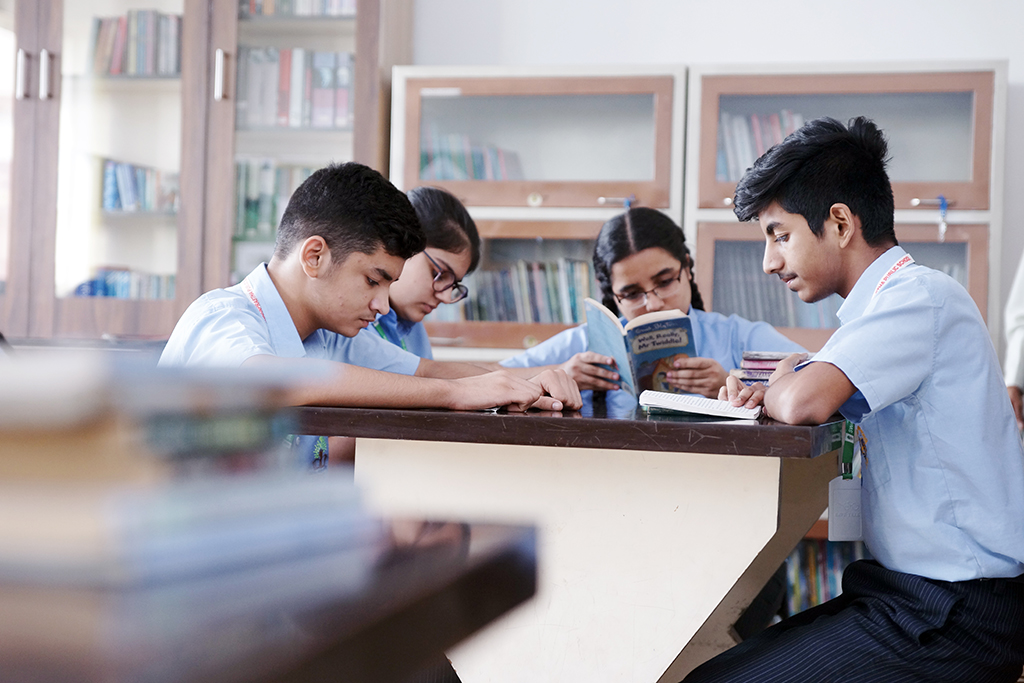Just a few years ago, project-based learning merely existed as a concept in research papers that held the potential to improve education. Now, PBL is an integral part of the top 5 schools in Sonepat because it adds the hands-on element to learning and expands the horizons of conventional classrooms. The improving technology is helping to fuel PBL. Teachers can direct students better given the easy accessibility to the internet and educational apps. PBL has become the 21st-century way of teaching as it helps both with knowledge retention and skill development.
Here are the different types of project-based learning methods that the best boarding schools often employ. No one type alone is sufficient to include PBL in the curriculum in its true sense. Modern-day schools have to mix and match and find the best fit depending on the need of the class and the subject at hand.
Academic-oriented PBL
This type existed even before project-based learning became famous for its obvious benefits. In academic-oriented PBL, students are generally asked to research a related but offbeat topic as compared to their syllabus and come up with a detailed report of the same. The research leads to diverse learning from sources that are not textbooks. Academic PBL can help to brush up basic concepts in a fun way and enable students to find a better grip on their subject content.
Activity-based PBL
The most common type of PBL is in use in the best boarding CBSE schools in Sonepat. Every time a teacher asks his/her students to build a model of the solar system or a replica of the Hubble’s Space Telescope, the motive is to teach the underlying working or the involved concepts through the activity. The model of the solar system can show students how the sun’s gravitational force keeps the planetary system in place. The replica of the telescope can teach students about advanced optics. Activity-based PBL is kinesthetic and the students learn by doing.
Challenge-based PBL
Using everything that the students have learned to date, they are now to tackle a challenge and propose possible solutions as part of a project. That is what challenge-based PBL is all about. The topic can be anything under the sun but it has to be a challenge that the world is still trying to solve. The students can devise a plan to make nuclear power plants safer. They can research possible sites to install solar panels. From global warming to saving the environment, students can learn so much about so many topics with challenge-based PBL.
Inquiry-based PBL
The most effective way to spark curiosity around a certain subject and ensue a detailed learning methodology is by engaging the students in inquiry-based PBL. As evident, it combines the benefits of inquiry-based learning and project-based learning. Boarding school teachers can ask students any question – starting from why humanity is this much dependent on coal to what are the ethical implications of gene-editing technology. And the students are to research and come up with convincing answers without any loopholes.
Place-based PBL
This type is more about working with the community or finding out more about a specific location than actually finishing a project. School excursions are when place-based PBL can take place. Students can research a historical site that they are visiting or work with the local authorities to keep the city’s streets clean. Place-based PBL involves students in their society, makes them aware of the community’s ongoing problems, and teaches lessons that are about the real world.
Student-based PBL
Ultimately, the best school in Sonepat realizes that personalization is the need of the hour in education. And that is where student-based PBL comes in. Here, the student has the freedom, at times, to choose the type of PBL he/she wishes to learn through. The student may also have to choose the topic, the research materials, the end goal, and the assistance necessary. Student-based PBL makes learning more about the student by flipping the classroom and matching the pace in which he/she wishes to learn the involved topic.
PBL is indeed an effective learning tool that emphasizes the process of learning more rather than the end result. And Swarnprastha Public School integrates all the above-stated types of project-based learning in its curriculum because of their proven benefits. Using smart technology, SPS enables its students to seek out different projects and learn their subjects through curiosity, research, activity, and collaboration. The experienced faculty uses the latest PBL techniques to teach students. The resources available at the school are unmatched in Sonepat. In SPS, students learn and retain their subjects along with forming skills that help to complete education.








